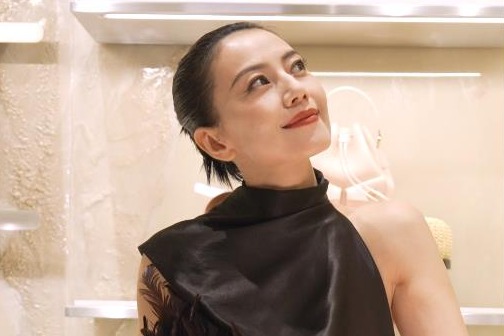Scholar finds his calling in China
Australian philosopher discovers enduring insight within pre-Qin thought, uniting tradition, evolution, morality and cooperation as a teacher at Yuelu Academy, Guo Yanqi reports.


On a mid-autumn night, Australian scholar Jordan Martin — also known by his Chinese name Ma Zhaoren — walked through the moonlit courtyards of Yuelu Academy, Hunan province. In the hush of the ancient halls, he felt the weight of a thousand years of learning and a kinship with those who came before him.
That sense of continuity helps explain why Martin came to China and why he has stayed for more than a decade.
After earning both his master's and doctorate in philosophy at the academy, the 38-year-old joined its faculty in 2022. Today, he teaches and researches Chinese philosophy with a focus on pre-Qin (before 221 BC) thought, tracing its evolutionary roots and reinterpreting its wisdom for contemporary and global audiences.
At first, his motivation was practical. "I wanted to really master Chinese and realized I needed to immerse myself in the language," he recalls.
That decision and a chance introduction brought him to Yuelu Academy. What he found there was more than an academic institution. "There's a sense of mission and purity I've never felt elsewhere," he says. "When I first stepped into the academy over a decade ago, I was captivated by its history and its sacredness. I thought, this is the place I've dreamed of."
For Martin, studying at Yuelu opened the door to pre-Qin philosophy, a world that still resonates deeply with modern life. The enduring power of these ideas, he believes, lies in their ability to transcend time, language, and national boundaries.

He points to Xunzi's (a thinker, educator and important representative of Confucianism in the Warring States Period, 475-221 BC) observation that humans are unique in their capacity to cooperate. "The conveniences we enjoy in modern society aren't built on individual excellence," Martin explains. "They depend on vast networks of cooperation among strangers. That capacity for social organization is the underlying engine of cultural development."
With interests in cross-disciplinary research and the evolutionary basis for philosophy, Martin combines pre-Qin thought with evolutionary theory.
The pre-Qin thinkers were deeply concerned with questions about human nature and the origins of moral psychology. Those are fertile grounds for an evolutionary perspective, he says.
One example is de (virtue).Beyond moral quality, Martin interprets de as a social signal. Signals are powerful only if they are hard to fake. Rituals such as sacrificial ceremonies, fasting, or the traditional three-year mourning period embody this principle.
"Biology shows us costly signals in nature," Martin says. "Culture has its own, and they help stabilize cooperation. Seen this way, de and ritual have been consistently retained through cultural selection."
This lens also sheds light on China's unique intellectual path. Unlike its Axial Age peers (a term coined by philosopher Karl Jaspers referring to a pivotal period in ancient history from the 8th century to 3rd century BC, when significant intellectual, philosophical and religious systems emerged across various regions in the world), China shifted relatively early from belief in a personal deity to reverence for tian (heaven) — an impersonal, natural order. The social functions of ritual and virtue, Martin suggests, help explain this distinctive trajectory in thought.
Across his work, he returns to one theme: that certain moral tendencies are not uniquely Chinese but universal. He cites Mencius' idea of extending care outward from the family. "It's expressed in Chinese terms, but it rests on instincts we all share," he says. "The bonds that connect us are stronger than the lines that divide us."

For Martin, becoming a teacher at the academy is both a source of pride and a responsibility. Not having grown up in China, he remains keenly aware of his gaps in historical knowledge. "To deserve the title 'teacher at Yuelu Academy', I need to work twice as hard," he says.
In the classroom, he now prepares to teach in Chinese. For him, the challenge lies not in vocabulary but in precision. "Everything has to be carefully prepared and clearly reasoned. That pushes me to be more rigorous in my teaching," he says.
When he attends international conferences, Martin always sets aside a moment to introduce Yuelu Academy. "Even if time is short, I talk about its thousand-year history," he says. "I want colleagues to be curious, maybe even visit. It plants a seed."
As Martin says, around the world there are those who preserve their traditions while embracing new knowledge. That is what the scholar sees at Yuelu, and it is the ideal he strives to embody himself.
The spirit of the academy, he believes, is best captured in a classical Chinese line: "Just as heaven keeps moving forward vigorously, a man of virtue should strive continuously to strengthen himself." It is not only a motto but a method — of study, of teaching, and of living.
Contact the writer at guoyanqi@chinadaily.com.cn




































